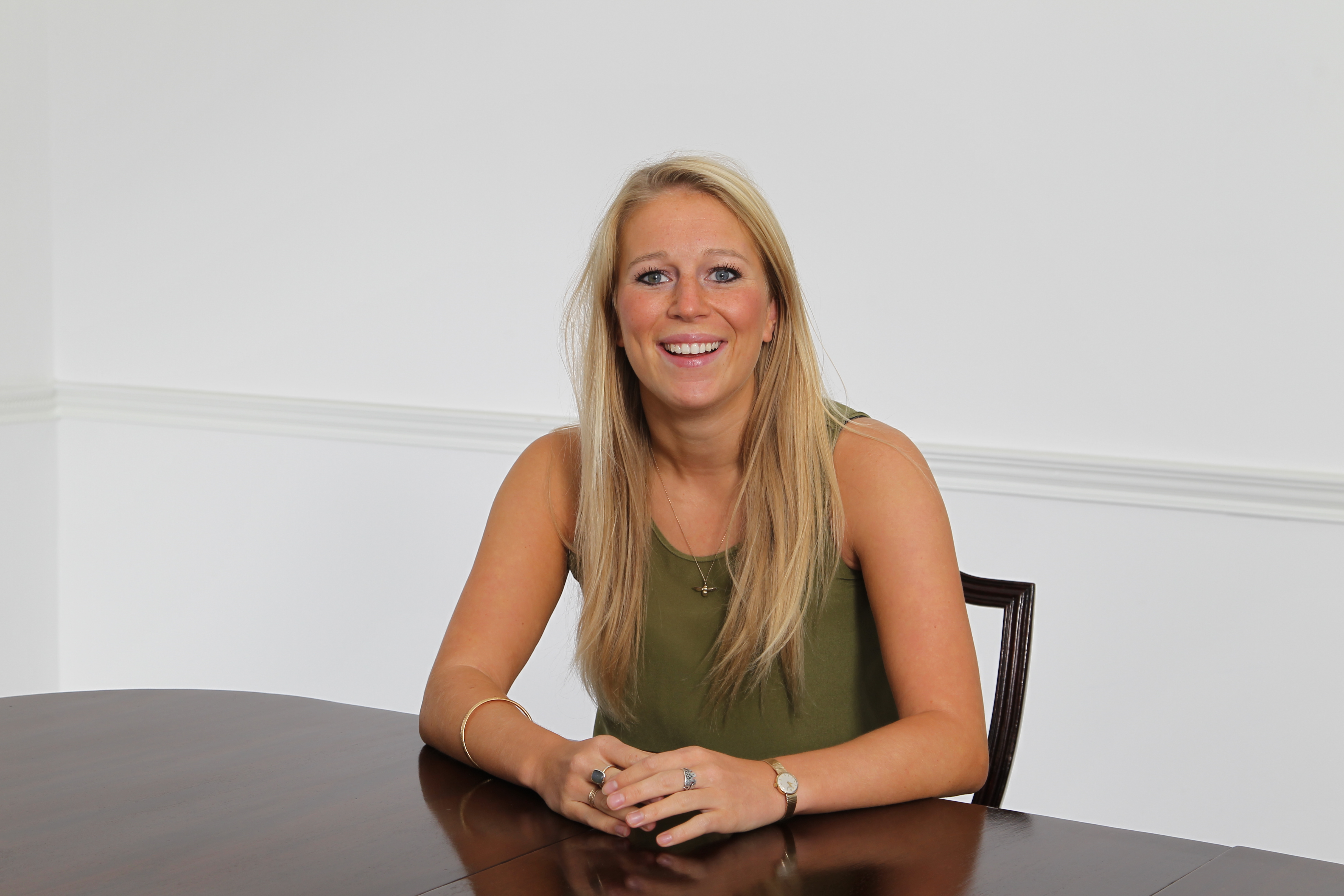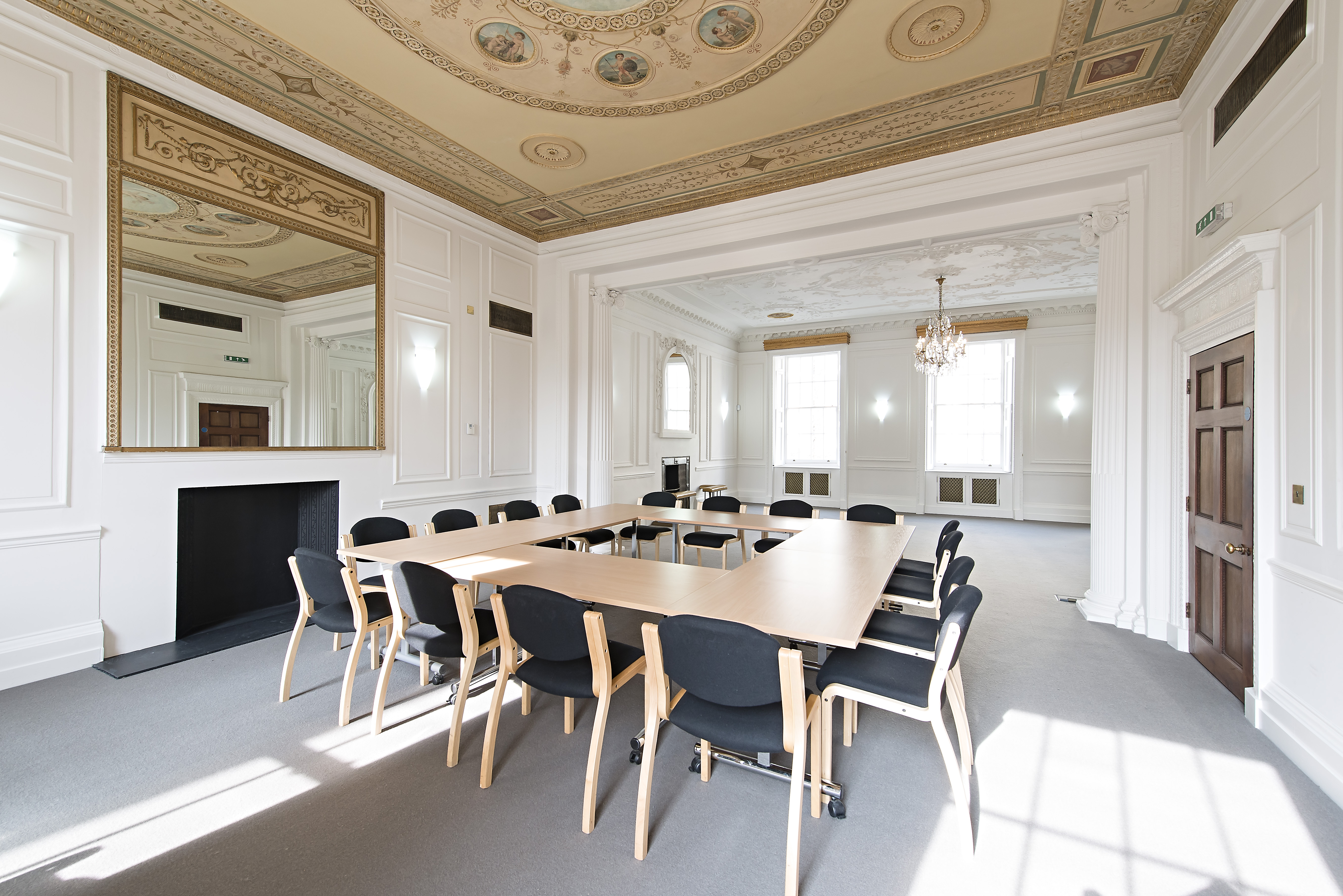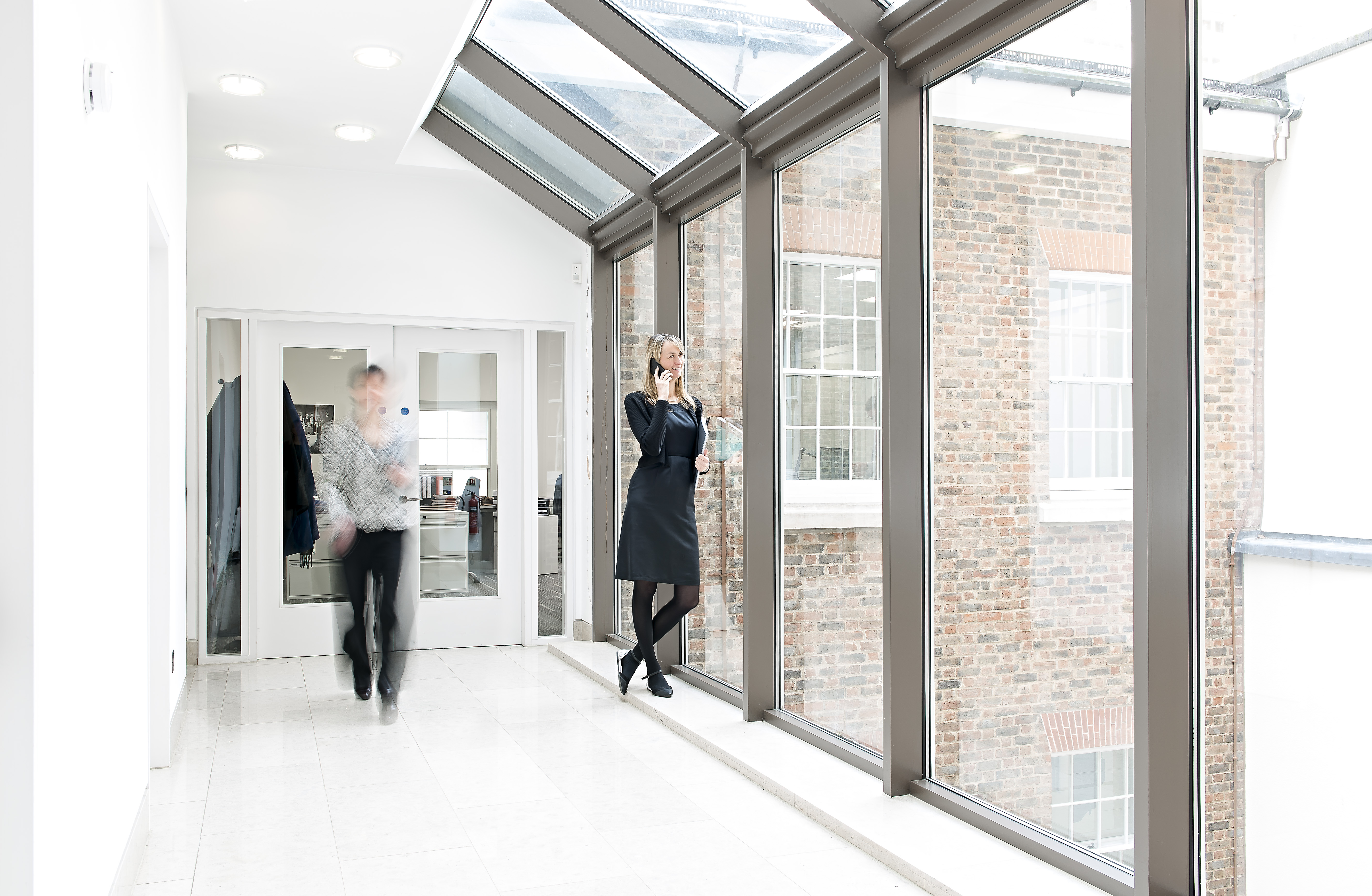The recruitment process was excellently run. With friendly communication, and a high level of partner involvement, I was made to feel that the firm genuinely valued its trainees and was fully invested in the recruitment process.
Formed in 1998, Forsters is still relatively young compared with many of its competitors, but this didn’t stop it taking away the 2018 award for best recruiter – medium City firm. According to Victoria Towers, graduate recruitment and commercial real estate partner, the firm’s history is one of its distinguishing factors. “We are quite modern”, she explains, “and I think this comes through in how we approach things. We have a traditional client base and traditional areas in which we work, but we’re forward thinking in our approach and I love that.”
Clearly unafraid to do things differently, Forsters has carved its own path from the beginning. Unwilling to merge with a large City-based firm, 10 partners from Frere Cholmeley Bischoff opted instead to create a new firm, enviably located in prestigious Mayfair. Their vision, was to “create a new firm with a distinctive culture which could provide a genuine alternative to City firms.”

Although Forsters predominantly focuses on real estate and private client, it has grown rapidly over the past 20 years and is now making its mark in other areas of law. “By way of example, our family department is doing brilliantly and is involved in a number of fantastic high-profile cases and decision making,” says Victoria. “Our corporate department is also thriving – so we have our two principal areas, but the departments around those are really forging ahead too and building their own business.”
We have a traditional client base and traditional areas in which we work, but we’re forward thinking in our approach and I love that.
This is why Victoria believes a training contract at Forsters provides an excellent springboard into a legal career. Jo Thompson, trainee, agrees: “Getting my newly-qualified solicitor role in private client was a highlight”, she says, reflecting on her time to date. “It was just such a relief to secure it because during my training contract it has been my favourite seat. It’s the degree of client contact that you get which I love. You do the work and then meet the client and get to see it all come to life.”
The level of responsibility that Forsters’ trainees are bestowed with sets the firm apart. For Jo, there are clear differences between her experience and that of her friends who opted to work at larger firms: “They work with some really well-known clients and it’s exciting and very fast paced, but I think that I have more responsibility and that the calibre of work that I’ve done is better. Sometimes they can’t believe the level of the work that I’ve been asked to do – just the fact that I’ve been trusted to do a particular draft or research a certain subject.”
Forsters expects a lot from its trainees, so it’s unsurprising that it invests significant resources into ensuring that its recruitment process allows it to identify the best candidates. “We’re constantly reviewing our processes and at the end of each graduate year we have a full debrief on what we’ve done and what we need to improve for the next year,” explains one of the HR officers on the graduate recruitment team. “For example, in 2015 we introduced assessment days so that we could test candidates over more areas. They now have an interview, a written case study exercise and a group exercise to do on the assessment day. This gives them the opportunity to showcase their skills across three different exercises and gives us the chance to see how they perform, which enables us to get a fuller picture.”
One of the reasons why they’re so involved is that they understand how important developing our future trainees is.
Following the assessment day, Forsters identifies 14 students to complete a two-week vacation scheme at the firm, which they attend in two groups of seven. Candidates then undergo a second round of interviews as part of the training contract selection process. For Jo, this second interview was the most challenging, although she looks back on it fondly: “We were assigned a topic, on which we had to do a presentation and then answer questions. Mine looked at tax avoidance and evasion, and Gary Barlow’s own tax affairs. It was nice because I came out of it and I didn’t feel like I wanted to burst into tears, as I had with a couple of other interviews. The partners were very encouraging. It felt like a two-way interview because when we had the debate, I would ask questions too, so it wasn’t just them questioning me, it was more of a discussion.”
At Forsters, partners are heavily involved in the recruitment process, with a panel of 12 conducting interviews, participating in the assessment process and reviewing the candidates’ performances. “One of the reasons why they’re so involved is that they understand how important developing our future trainees is”, as the HR team explain. “They’re willing to invest their time and effort in making sure that we get the right candidates.”

So what does the right candidate look like? For Victoria and the graduate recruitment team, commercial awareness and an ability to think strategically are both important factors. “We’re also looking for team players who are resilient, excellent at problem solving, personable, driven, ambitious and honest”, she adds. “They have to have integrity, a strong work and service ethic and a real desire to contribute to the life of the firm.”
Competition is tough, with Forsters choosing just seven to nine trainees each year. For Victoria, this means that each trainee gets exposure to great work: “You’re not just a number,” she enthuses. Jo agrees, citing Forsters’ position as a medium-sized firm as one of the main reasons she applied for its vacation scheme: “I did work experience before applying for any internships or vacation schemes and it just became so clear that I didn’t want to apply to any large firms”, she recalls. “I wanted to apply to a medium-sized firm because trainees are generally more involved in the work. You’re a medium cog in a medium wheel rather than a tiny cog in a massive wheel.”
Like most firms, Forsters recruits two years in advance, but trainees receive a lot of support from the start. In addition to financial help, the HR team are there to answer any questions that they might have. “They are brilliant”, Jo enthuses. “They are great at keeping things on track and making sure that you’re invited to everything. I went to at least four or five events a year leading up to starting as a trainee, so by the time I got here, I already knew quite a few people.”
You always feel like you can ask for help, which is so important – especially because the law is always changing.
With collaboration among colleagues being one of the firm’s core values, this emphasis on relationship building is clearly important. “I know everyone says it and it feels a bit cliché”, Victoria says, “but we are approachable and everyone who comes here says that. Those who take part in the vacation scheme consistently enthuse about the collegiate feel the firm has and how everyone is made to feel extremely welcome.”
“Everyone’s kind and really fun”, agrees Jo. “You always feel like you can ask for help, which is so important – especially because the law is always changing. There are always things you don’t know, so it’s crucial to have that camaraderie and Forsters has it in spades.”
This is apparent at every level, with trainees and partners working in close collaboration: “There’s so much partner contact”, Jo says. “Every day I probably work with four different partners. Nearly every piece of work that I do will be structured so that a partner, a senior assistant or associate and me will be working on it, although sometimes it’s just the partner and me. I’ve done quite a few presentations with partners, which is quite a nice way to get to know them and learn more about a subject area.”

This isn’t the case everywhere: “Having worked here, I think it’s crazy that there are some firms where you don’t have partner contact”, she continues. “I can’t imagine what that would be like! Today, for example, I drafted a will and had feedback from a partner for about 20 minutes – just explaining why things are like they are, why the precedent is how it is. I found it really helpful.”
Such a hit-the-ground-running approach may seem daunting, but Forsters has processes in place to ensure that its trainees can thrive. “We do expect a lot”, Victoria admits. “Obviously the Solicitors Regulation Authority sets out its practice standards, but we felt like there were more things that we wanted our trainees to be able to do by the time they finished their two years”. To help trainees, Forsters introduced a training competency framework in 2016. “It sets out our expectations so that trainees have a reference point and know how to achieve their objectives”, Victoria explains. “This gives them a really solid platform to work out how they’re doing in their training contract, what areas they need to work on and how they’re meeting expectations.”
For, this approach has been extremely helpful. “I’ve had really good training here”, she reflects. “Everyone’s been really involved since day one. It’s quite scary when you start, but the more you’re given to do and the more responsibility you’re entrusted with, the more room you have to use your initiative and take responsibility for your work, so you improve massively.”
I feel really lucky to work here. I don’t think everybody can say that. If someone told me that I would stay here for my whole career, I’d be fine with that.
Although she’s been trusted with a lot of responsibility, Jo loves the emphasis that Forsters places on work-life balance. “I work really hard every day”, she states, “but most people are out of the office by seven. When you’re here you work hard and you get your head down, but life is a priority”. Victoria agrees, citing the firm’s lack of presenteeism as a distinguishing factor: “Ultimately, we realise that people have a life outside work and we encourage them to have that.”
This level of freedom and flexibility was particularly appealing for Jo when thinking about her long-term plans: “There are so many women here and so many female partners who have kids – and who see their kids – and that was really appealing to me”, she explains. “It was quite clear that I could have both and that I wouldn’t have to make that sacrifice”. Ultimately, Jo – who turned down a final interview with a competitor to take the role at Forsters – couldn’t be happier with how things have turned out: “I feel really lucky to work here”, she admits. “I don’t think everybody can say that. If someone told me that I would stay here for my whole career, I’d be fine with that.”
It’s evident that Forsters is a rewarding place to work, which – for Victoria – comes down to its forward-thinking approach. “We’re very self-aware”, she sums up. “We are ambitious, but not arrogant. I think the attitude that the partners have, which flows through the firm, is that we are very much custodians of what we have got and what we do. It’s all about leaving something valuable and creating an environment that we can pass on to the future, which is our trainees.”
The HR team agree: “It’s really important for us to have those future partners and therefore we need to invest the time and money into the process to get the right candidates to continue that success, which is why graduate recruitment is so important to the firm.”
By Emily Gilmore

Best Recruiter – Medium City Firm
The recruitment process was excellently run. With friendly communication, and a high level of partner involvement, I was made to feel that the firm genuinely valued its trainees and was fully invested in the recruitment process.

